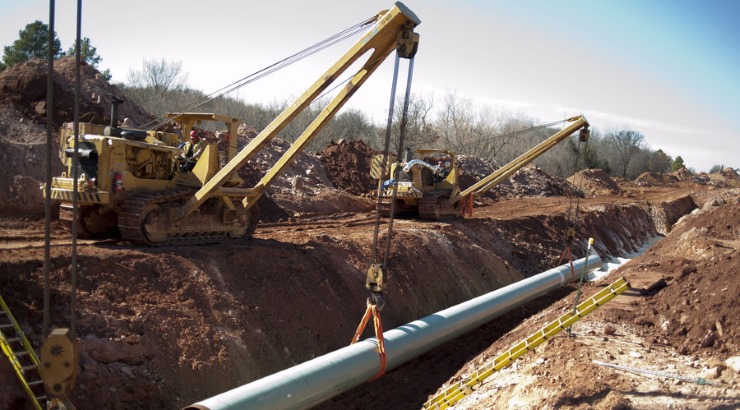Infrastructure
Work on Mombasa-Nairobi Pipeline Gets Underway
It will replace the 14-inch pipeline that has existed for 36 years.

Construction of a 450km oil pipeline from Mombasa to Nairobi is expected to be completed by September next year, easing the flow of refined petroleum products to market.
The Kenya Pipeline Company (KPC) is seeking to build a 20-inch pipeline from Mombasa Port to Nairobi to replace the 14-inch pipeline that has been operational for 36 years.
Work on the Mombasa-Nairobi oil pipeline – a Vision 2030 project – started in July last year following the signing of a contract with Zakhem International Company, which has since mobilised resources and placed orders for plant and equipment required for the project.
“More than two-thirds of the pipes required have been delivered to various project sites along the Mombasa-Nairobi pipeline route. The remainder of the pipes will be delivered by the end of this month,” KPC acting managing director Flora Okoth said in a statement on Wednesday.
“Welding works for the pipeline have commenced and will be completed in a few months for installation of other project components to begin.”
The project is expected to cost Sh48 billion – more than double the initial budget.
On Wednesday, KPC signed a Sh35 billion loan agreement with a consortium of six local and international banks to finance 70 per cent of the pipeline project.
The consortium includes CfC Stanbic Bank and Citibank N. A (Kenya), Commercial Bank of Africa, Co-op Bank, Rand Merchant Bank, and Standard Chartered Bank.
RELATED: Kenya, Uganda to Build World’s Longest Heated Oil Pipeline
KPC had early last year invited both local and international financial institutions to express their interest in funding the project which will be partly financed through the state-owned company’s internal resources.
The new 20-inch oil pipeline is expected to meet petroleum products demand for the Eastern Africa region up to the year 2024.
The current 14-inch pipeline is unable to meet the rising demand for petroleum products in the region, even after the government invested Sh7.8 billion in 2008 to double its flow rate from 440,000 litres an hour to 880,000 litres per hour.
This has seen many traders using trucks to transport oil products in the region – a painfully slow and unreliable method owing to damaged roads and the breakdown of vehicles.
“The new line is a strategic national project that will enhance the security of supply to the region while transporting increased volumes,” says George Wachira, the director of Petroleum Focus, a Nairobi-based consulting firm.
Kenya and Uganda are also planning to build a 350 km pipeline between Eldoret and Kampala to ease fuel supplies to the landlocked Uganda, Rwanda, and Burundi.














